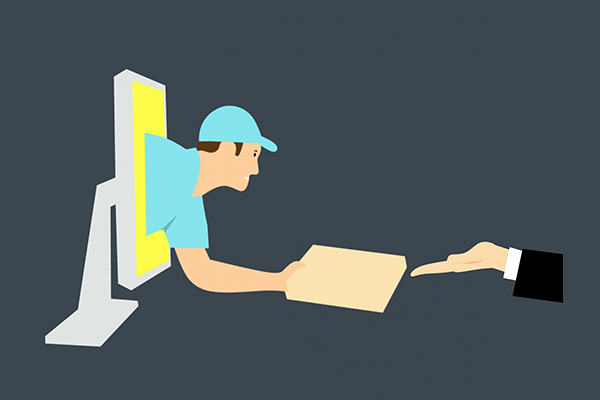Fullfilment
Now that you’ve successfully started marketing your product, this hopefully means you have orders to fulfil. There are three main ways to get your product to your customer. As your business grows, consider moving to the next style of fulfillment. Each fulfillment strategy is arguably better than the last, for both yourself as well as your customer’s needs.
Dropshipping

This is how almost every ecommerce business begins. In the past five years, dropshipping has become an
incredibly popular way to make money online, due to its low risk, high reward nature. However, there are
plenty of downsides, which make this style of fulfillment not very sustainable over a long period of time.
The way dropshipping works is simple. When somebody purchases your product on your website, instead
of already having a supply of product in stock, you instead purchase that item from websites like AliExpress
at a cheaper price and have them shipped directly to the customer. This way there’s no risk in inventory if
your product doesnt sell, and you only spend money once a purchase has been made.
It seems almost too good to be true, and that’s because it is. These websites typically ship from China,
which means incredibly slow shipping times. Customers will likely wait weeks for their products to arrive.
This means increased efforts in customer service, and a decrease in returning customers. Dealing with
hundreds of orders being dropshipped can quickly become a logistics nighmare, with dozens of emails
daily, and numerous missing packages. This can also lead to chargebacks with the customers bank, which
can cost your business hundreds of dollars.
Although its simple and carries almost no risk, it’s important to view dropshipping as only a way to test if
your product and business model is successful. Once you begin to receive orders, it’s time to move on to
the another method of fulfillment.
Self-Fulfillment

Although this isn’t often talked about in the ecommerce space, fulfilling your orders yourself can be a great
first step when moving away from dropshipping. Unlike dropshipping, there is more of a risk involved, and
this style of fulfillment will involve an initial investment. However, if you’ve mastered your business model
with dropshipping you shouldn’t be too worried.
The first step is finding a manufacturer to buy your product in bulk. There are many ways of going about
doing this, but the most popular service is Alibaba. Alibaba can connect you with thousands of Chinese
manufacturers who are able to manufacture your product. The most efficient way to find a manufacturer
is to use the Request For Quatation (RFQ) tool. RFQ allows you to simply upload of photo of your product
and answer a few simple questions and the manufacturers will reach out to you. You will likely receive
dozens of quotations, but you should try and narrow down your decision to 3-5 manufacturers. Order
some samples and select the best option based on budget, and the quality of the product.
Once your product arrives, you’re ready to start fulfillment. If you’re using Shopify to run your business,
they make self-fulfillment extremely simple, allowing you to purchase and print labels straight from the
website. You should invest in a good label printer as well as plenty of packaging and you will be ready to
go. Your customers will enjoy fast shipping times, and your business will be more legitimized.
Third Party Logistics (3PL)

This final solution allows your business to scale almost indefinitely and removes almost all responsibilities
of fulfillment. This solution is using third party logistics. There are dozens of different services that provide
third party logistics, but they allow follow the same principles.
Like self-fulfillment, you will need to make an initial investment of buying your products in bulk. You’ll
follow the same steps provided before only this time you will be shipping your products to a warehouse
rather than your personal address.
Here, the logistics company will connect to your Shopify dashboard, and when an order is placed, they will
pick and pack your order and have it shipped straight to your customer, all without you clicking a button.
There are additional costs to the solution such as storage space and a small fee for each order, but in the
grand scheme of things, these expenses are well worth it.
Using third party logistics allows you to focus on continuing to scale your business, while not worrying about
shipping out orders. Most services will work with small brands getting only 5 orders a day up to big brands
getting hundreds or even thousands of orders. This means no matter what size your business is, 3PL can
work for you.
